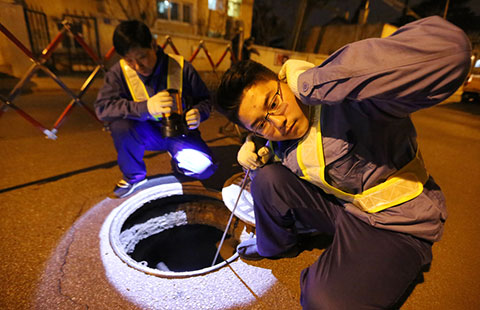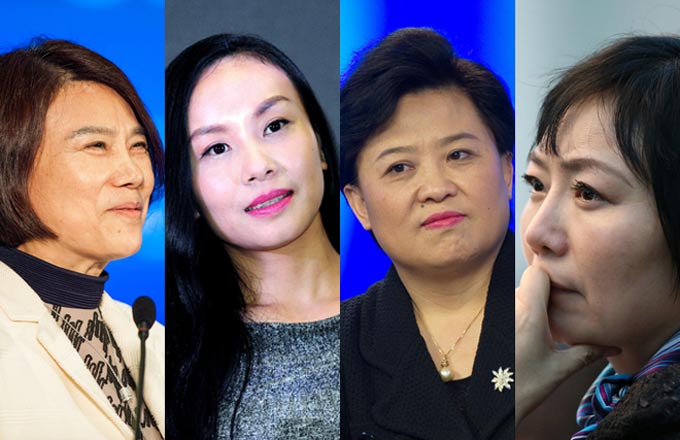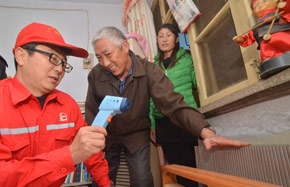Insurance a cure for medical woes
By He Na in Beijing and Han Junhong in Jilin (China Daily) Updated: 2013-04-02 07:13
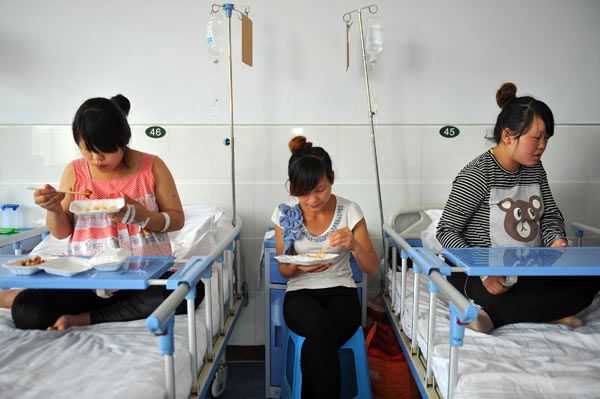 |
|
Pregnant women eat lunch at a county hospital in Fugu county, Shaanxi province. Basic medical insurance covered more than 95 percent of the Chinese population in 2011, forming the largest basic medical insurance network in the world. [Photo/XINHUA] |
Unified system urgently needed to protect migrants, report He Na in Beijing and Han Junhong in Jilin.
An inflamed pancreas was the jab in the side Zhao Zhiqiang needed to realize that health insurance was a good idea.
"It was like torture. It was really painful, and even though it was more than six months ago, I'm still afraid of hospital drips," said the 52-year-old farmer from Huangdi village in Jilin city.
"But the most painful experience was when the nurse told me there wasn't enough money in my hospital account to cover the cost of the medicine. That happened quite a few times," he recalled.
"I wanted to pull out all the drips and go home," Zhao said.
His 23 days of hospital treatment cost more than 22,000 yuan ($3,500), almost an entire year's income for a farmer.
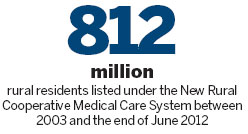
However, thanks to the New Rural Cooperative Medical Care System, he only had to pay about one-third of that.
Because Zhao had always been reluctant to join the insurance system, the treasurer of the program was surprised when he was the first to pay up this year.
Now Zhao has been helping persuade hesitant or unwilling villagers to join the program.
"My son had just got married and we had borrowed a lot of money from relatives to build the new house, hold the wedding and pay a dowry. If the government hadn't reimbursed most of the health cover, I would definitely have been refused treatment. It saved my life," he said.
- Medical insurance for champions stirs debate
- 98% rural population covered by medical insurance
- China to expand rural medical insurance coverage
- Include civil servants in public medical insurance system
- More govt subsidies for rural medical insurance system
- CPIC plans to offer long-term endowment, medical insurance
- Guangzhou to rise personal payment for medical insurance
- China to better supervise medical insurance funds
- Securities watchdog stresses strict supervision
- China-New Zealand joint food science center to open economic opportunities
- Boeing, Juneyao Airlines finalize order for five 787-9 Dreamliners
- China home to most Decathlon stores outside France
- Chinese-backed real estate investment launched in Kenya
- Chinese company signs agreement to build hydropower plant in Laos
- China to see 'handsome growth' in 2017 NEV sales
- China's automakers FAW, Dongfeng to co-build innovation center

